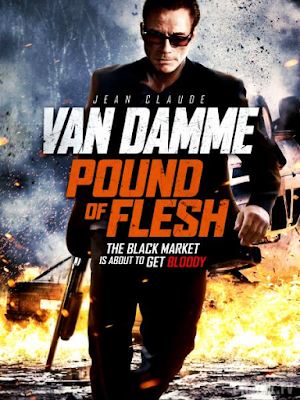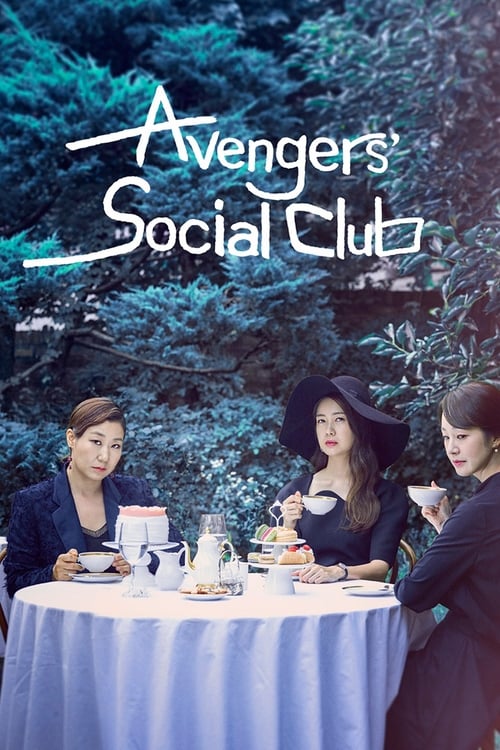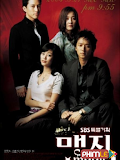Revolver
Revolver begins with a scene full of mystery and doubt, as a woman steps out of prison. Su-young, once a police detective, is now just a shadow of her former self after accepting prison time for someone else. The first impression of Revolver is that it’s a revenge story, but the film quickly paints a more complex picture. Pauline Kael often spoke about how films should have depth in every action, and Revolver achieves that. It’s not just an action movie with chases and fights but also a tale of inner turmoil, betrayal, and the struggle to reclaim honor.
Su-young in Revolver is not your typical hero. She no longer believes in justice or honesty. The film creates an ambiguous and dark atmosphere when Yoon-sun, a mysterious woman, appears on the day Su-young is released. Just as Kael would have observed, Revolver is a work that transcends the usual revenge genre, offering complex and subtle psychological layers. It doesn’t just tell a simple story of recovering what was lost; it’s a profound lesson on the cost of betrayal and blind trust.
The strength of Revolver lies in the way the story unfolds, from Su-young realizing that the promised compensation has disappeared to her relentless quest for justice. Revolver keeps the audience on edge, with constant surprises and meticulously staged action scenes. Pauline Kael would praise these scenes for not only being entertaining but also for carrying deeper psychological meaning for the characters.
Revolver is a blend of Su-young's strength and vulnerability. In one scene, she ruthlessly takes down many adversaries, but in the next, the film reveals the emotional scars she carries. This contradiction makes Su-young both memorable and relatable. This is much like how Kael always admired imperfect characters who resonated with audiences.
Unlike other revenge films, Revolver delves into the emotional layers of its characters, drawing viewers into a jouey where loss and betrayal are sharply portrayed. Close-up shots of Su-young’s pained face, accompanied by haunting music, create a somber yet captivating atmosphere. Kael, known for her attention to the finer details of cinema, would certainly appreciate the director's effort in meticulously portraying every emotion of the lead character.
The confrontations in Revolver go beyond physical action; they are mental duels between the characters. Su-young faces those who betrayed her, but more importantly, she confronts herself, her past decisions, and the price of trust. Pauline Kael would see this as a significant character development, where every action has deeper consequences and meaning.
Revolver doesn’t forget to provide moments of relief, light-hearted scenes between the tense moments. But as Kael would have pointed out about films with depth, these moments aren’t escapism but a prelude to an unsettling conclusion. Revolver is not just an action film but an emotional jouey, a quest for justice and honor.
With its clever storytelling and impressive performances, Revolver deserves to be regarded as one of the most notable films in the revenge action genre. For Pauline Kael fans, this film will remind them of how she used to analyze the motivations and emotions of characters in classic cinema.
Revolver isn’t merely a chase; it’s a lesson about life, where betrayal can tu people ruthless, and where revenge doesn’t always bring peace.

Revolver
-
Status:
- Full HD - Multi-Subtitles
- Seung-uk Oh
Directors: Seung-uk Oh
Actors: Ji Chang-wook, Jeon Do-yeon, Jeong Jae-yeong, Lim Ji-yeon, Kim Jong-soo, Kim Jun-han, Jeong Man-sik
Genres: Movies, Drama, Crime,
Country: Korea,
Time: 1 hours 54 minutes
Release Year: 2024
Productors:
Revolver begins with a scene full of mystery and doubt, as a woman steps out of prison. Su-young, once a police detective, is now just a shadow of her former self after accepting prison time for someone else. The first impression of Revolver is that it’s a revenge story, but the film quickly paints a more complex picture. Pauline Kael often spoke about how films should have depth in every action, and Revolver achieves that. It’s not just an action movie with chases and fights but also a tale of inner turmoil, betrayal, and the struggle to reclaim honor.
Su-young in Revolver is not your typical hero. She no longer believes in justice or honesty. The film creates an ambiguous and dark atmosphere when Yoon-sun, a mysterious woman, appears on the day Su-young is released. Just as Kael would have observed, Revolver is a work that transcends the usual revenge genre, offering complex and subtle psychological layers. It doesn’t just tell a simple story of recovering what was lost; it’s a profound lesson on the cost of betrayal and blind trust.
The strength of Revolver lies in the way the story unfolds, from Su-young realizing that the promised compensation has disappeared to her relentless quest for justice. Revolver keeps the audience on edge, with constant surprises and meticulously staged action scenes. Pauline Kael would praise these scenes for not only being entertaining but also for carrying deeper psychological meaning for the characters.
Revolver is a blend of Su-young's strength and vulnerability. In one scene, she ruthlessly takes down many adversaries, but in the next, the film reveals the emotional scars she carries. This contradiction makes Su-young both memorable and relatable. This is much like how Kael always admired imperfect characters who resonated with audiences.
Unlike other revenge films, Revolver delves into the emotional layers of its characters, drawing viewers into a jouey where loss and betrayal are sharply portrayed. Close-up shots of Su-young’s pained face, accompanied by haunting music, create a somber yet captivating atmosphere. Kael, known for her attention to the finer details of cinema, would certainly appreciate the director's effort in meticulously portraying every emotion of the lead character.
The confrontations in Revolver go beyond physical action; they are mental duels between the characters. Su-young faces those who betrayed her, but more importantly, she confronts herself, her past decisions, and the price of trust. Pauline Kael would see this as a significant character development, where every action has deeper consequences and meaning.
Revolver doesn’t forget to provide moments of relief, light-hearted scenes between the tense moments. But as Kael would have pointed out about films with depth, these moments aren’t escapism but a prelude to an unsettling conclusion. Revolver is not just an action film but an emotional jouey, a quest for justice and honor.
With its clever storytelling and impressive performances, Revolver deserves to be regarded as one of the most notable films in the revenge action genre. For Pauline Kael fans, this film will remind them of how she used to analyze the motivations and emotions of characters in classic cinema.
Revolver isn’t merely a chase; it’s a lesson about life, where betrayal can tu people ruthless, and where revenge doesn’t always bring peace.



























